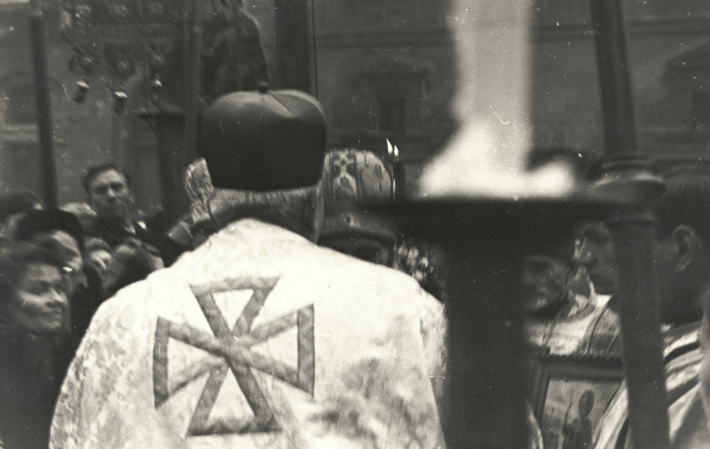Archival documents on the destruction of the UGCC were made public
Thursday, 11 March 2021, 16:00 33 documents on the operation to liquidate the Ukrainian Greek Catholic Church - the Pseudo-Council of Lviv, which was carried out by the Soviet authorities in 1946, were published in the public domain.
The documents show that 60-70% of the delegates of the "council" were agents of the NKGB. The authorities allocated RUR 400 thousand for the event. The delegates selected by the Special Service were provided with housing and food, and they were asked to spare no money for their maintenance. Opposition representatives of the Greek Catholic clergy were repressed before the operation.
After a long training of agents, on March 8-10, 1946, a pseudo-council plan was implemented in Lviv: the union with the Roman Catholic Church was abolished. The UGCC left the Vatican and came under the rule of the Russian Orthodox Church.
The Center for studies of the liberation movement publishes the collection "Lviv Pseudo-Council of 1946 in NKVD documents" together with the archive of the security service of Ukraine on the website of the electronic archive of the Ukrainian Liberation Movement.
The collection includes:
- the order on the appointment of security guards to participants of the Pseudo-Council;
- the certificate of sending a telegram between employees of the NKGB;
- photos of the joint celebration of the Epiphany of the UGCC and the Russian Orthodox Church on January 19, 1946;
- the list of names of priests who should have been invited to the pseudo-Council;
- special report on the reaction of the clergy and population to the "Council" of Lviv;
- memo to Nikita Khrushchev on the state of the Greek Catholic Church after the "Council", and so on.
Special services carefully checked the delegates of the "Council" and reported to the leadership on their mood. So, for example, an opposition-minded delegate was a priest who confessed to remorse for participating in the Pseudo-Council.
One of the documents contains a report that the Pope appointed prisoner Iosyp Slipyi as cardinal — this worried the Soviet special services because of possible international "complications".
In the memo, Nikita Khrushchev was informed about various reactions of the population and clergy to the Lviv Council, in particular, that one of the ministers, along with parishioners, cried in despair during the service. Examples of persecution of Greek Catholics gathered at home were given.
The Ukrainian intelligentsia took the pseudo-Council with hostility. The NKGB report contains the testimony of Professor Ivan Kripyakevich:
"The Bolsheviks mock the Church and all Galicians in general. We all feel like we're in an occupied country... You will either have to run away from Lviv or hang ourselves...".
Electronic archive (avr.org.ua) - a service for open online access to full-text copies of archival materials. It is implemented by the liberation movement Research Center with the support of partners. Here, documents about the Ukrainian Liberation Movement, materials from the KGB archives and other thematic collections dedicated to the history of the twentieth century are freely available and published in high quality. Now the site already has more than 25 thousand digitized archival documents available for download.
https://risu.ua/en

We can imagine what the prayer of the prisoners in the Russian torture centers in the Ukrainian Kharkiv region was like – Head of the UGCC on the 206th day of the war 17 September
A vast cemetery, a mass burial, was found near the city of Izyum, in which more than 400 innocently killed and tortured people have already been...

